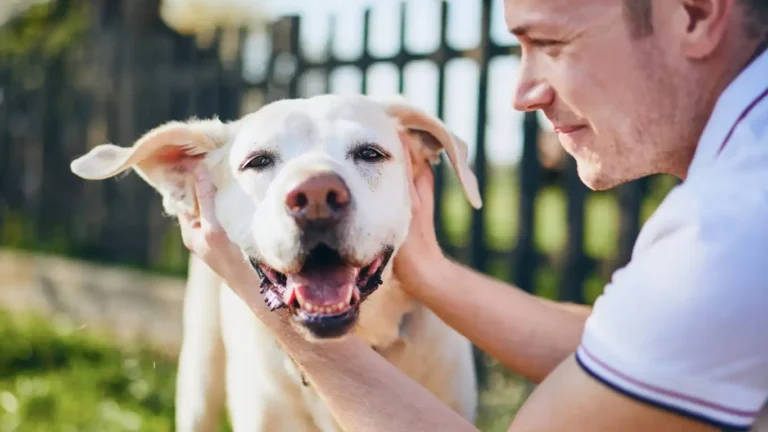How to Prepare a Balanced Vegan Diet for Dogs: A Complete Guide to Healthy Nutrition
As a pet nutritionist with years of experience working in veterinary clinics, I’ve seen the growing interest in plant-based diets for dogs. Many pet parents want to know how to prepare a balanced vegan diet for dogs that meets all their nutritional needs. It’s no surprise that people are choosing to go vegan themselves, and now, they’re wondering if their furry friends can also thrive on a similar diet. I’ll be diving into the details of preparing a balanced vegan diet for dogs, and I’ll share some of the tips and insights I’ve gained from working directly with pet owners and pets.
Understanding Vegan Diets for Dogs

Before we get into the specifics of creating a balanced vegan diet for dogs, let’s talk about what a vegan diet actually is for pets. In simple terms, a vegan dog diet excludes animal-based products—meaning no meat, dairy, or eggs. But it’s not as simple as just eliminating animal products. Dogs are omnivores, so they need a variety of nutrients to maintain health, energy, and a strong immune system. This means a vegan diet for dogs must be carefully planned to include plant-based sources of proteins, fats, vitamins, and minerals. Let me tell you, it can be a bit tricky, but with the right guidance, your dog can absolutely thrive on a vegan diet!
The Challenge of Meeting Nutritional Needs
When switching a dog to a vegan diet, the main concern is ensuring they get all the necessary nutrients. Unlike cats, who are obligate carnivores and cannot thrive on plant-based foods alone, dogs have a bit more flexibility in their diet. However, that doesn’t mean they can survive on just anything. Dogs still need certain amino acids, essential fatty acids, vitamins, and minerals, and it’s crucial to find vegan sources for these. If you don’t carefully consider these needs, it can lead to serious health issues. As a pet nutritionist, I’ve seen cases where improper vegan diets caused nutrient deficiencies, but I’ve also helped turn things around for pets with the right approach.
Essential Nutrients for Vegan Dogs
When preparing a balanced vegan diet for dogs, you need to focus on a few key nutrients to keep them healthy. Here are some of the most important ones to consider:
- Protein: Dogs need protein to build muscles, tissues, and enzymes. Plant-based sources of protein like lentils, chickpeas, and quinoa are great options. In fact, quinoa is considered a complete protein, meaning it contains all nine essential amino acids.
- Fat: Healthy fats are crucial for your dog’s skin, coat, and brain function. Look for plant-based oils like flaxseed or hemp oil, which are high in omega-3 and omega-6 fatty acids.
- Vitamin B12: This vitamin is typically found in animal products, so it’s important to include a B12 supplement in your dog’s diet. Vitamin B12 helps maintain nerve function and aids in the production of red blood cells.
- Iron: Iron is another nutrient to keep an eye on. Plant-based iron is not as easily absorbed by dogs as animal-based iron, so be sure to include plant sources like spinach, pumpkin, and legumes.
- Calcium: Calcium is necessary for bone health and is commonly found in dairy products. Since dairy is off the table in a vegan diet, you can provide calcium from plant-based sources like kale or fortified plant milks.
- Vitamin D: Vitamin D helps with calcium absorption. While dogs can produce vitamin D from sunlight, it’s a good idea to include a supplement to ensure they get enough, especially if they’re indoors a lot.
Building a Vegan Dog Food Recipe

Creating a balanced vegan meal for your dog at home doesn’t have to be overwhelming. In fact, one of the reasons many pet owners are choosing vegan diets for their dogs is because they can control what goes into the food. Here’s a simple outline of how to put together a balanced vegan recipe for your dog:
- Choose Your Protein Sources: Start with a plant-based protein like lentils, chickpeas, tofu, or quinoa. You’ll need around 20-30% protein in your dog’s diet, depending on their age and activity level. For example, if your dog is active, they may need more protein.
- Add Healthy Fats: Incorporate omega-3 and omega-6 fatty acids through flaxseed oil, chia seeds, or hemp oil. This helps keep their coat shiny and supports their joints.
- Include Vegetables: Dogs need a variety of vitamins and minerals. Add veggies like sweet potatoes, carrots, spinach, and broccoli. These will provide fiber, antioxidants, and essential micronutrients.
- Balance with Grains: Whole grains like brown rice, oats, or barley provide fiber and carbohydrates for energy. Make sure the grains are cooked well to aid in digestion.
- Supplements: Don’t forget the supplements! A high-quality dog vitamin supplement will fill in the gaps to make sure your dog is getting all the nutrients they need.
By carefully selecting ingredients, you can create meals that meet all of your dog’s nutritional needs. For example, one of my favorite homemade vegan dog recipes includes lentils, quinoa, sweet potatoes, spinach, and a sprinkle of flaxseed oil for a boost of healthy fats.
Consulting a Vet or Pet Nutritionist

While it’s possible to prepare a balanced vegan diet for dogs on your own, it’s always a good idea to work with a veterinarian or a certified pet nutritionist, especially if you’re new to vegan feeding. In my experience, many pet parents feel more confident knowing that their dog’s diet is being properly monitored. Plus, a professional can help ensure your dog’s specific health conditions (if any) are considered when designing their meal plans. Some dogs may have sensitivities to certain ingredients, and a nutritionist can help avoid any potential issues.
In the next section, we’ll talk about how to transition your dog to a vegan diet, signs to watch for during the transition, and how to make sure your dog is thriving on their new plant-based lifestyle.
Transitioning Your Dog to a Vegan Diet

So, you’ve decided to prepare a balanced vegan diet for your dog. That’s fantastic! But before you go all-in with the plant-based meals, you might be wondering how to transition your dog to a vegan diet smoothly. Transitioning can take time, and it’s important to approach it carefully to avoid upsetting your dog’s digestive system. I’ve had clients who rushed the process and ended up dealing with some gastrointestinal issues, so let me share my advice from personal experience on how to make the switch as smooth as possible.
The first thing to keep in mind is that sudden changes to your dog’s diet can cause digestive upset—think diarrhea, vomiting, or even a lack of appetite. It’s always a good idea to make the transition gradual. Over the course of a week to 10 days, slowly introduce the vegan food while decreasing the amount of their regular food. A good guideline is to start with 25% vegan food and 75% regular food for the first few days, and then gradually increase the amount of vegan food while decreasing the regular food. By the end of the transition period, your dog will be fully switched over to the vegan diet.
Signs to Watch for During the Transition
As you begin the transition, you’ll want to keep a close eye on your dog’s health. Some dogs may experience mild stomach upset at first, but these issues typically resolve themselves within a few days. However, if symptoms persist or worsen, it’s important to reassess the diet. Here are some common signs to watch for:
- Gastrointestinal issues: Mild stomach upset is common, but keep an eye out for more serious symptoms like severe diarrhea or vomiting, which may indicate a sensitivity to an ingredient in the vegan food.
- Loss of appetite: If your dog isn’t eating the new food, it could be a sign that they’re not enjoying it, or it might not be the right fit for them. You can try warming the food or adding a tasty topper to make it more appealing.
- Lethargy: If your dog seems unusually tired or sluggish during the transition, it could be a sign of nutrient imbalance, or they may not be adjusting well to the new food.
- Skin or coat issues: A sudden change in diet might lead to dryness or itching in some dogs. This could be related to a lack of essential fatty acids, so adding a supplement like omega-3 oil could help.
Don’t panic if you notice any of these signs. In most cases, these issues can be addressed by adjusting the diet or consulting your vet. It’s always a good idea to check in with your veterinarian or pet nutritionist during the transition period to ensure everything is going smoothly.
Monitoring Your Dog’s Health on a Vegan Diet

Once your dog has fully transitioned to their new vegan diet, you’ll want to continue monitoring their health. I can’t emphasize enough how important it is to regularly check in with your vet or a certified pet nutritionist, especially during the first few months. I’ve had clients who were hesitant to consult with a professional, thinking they could handle it all on their own, but working together ensures your dog is thriving.
Here are a few tips for keeping tabs on your dog’s health as they settle into their new diet:
- Monitor weight: Make sure your dog is maintaining a healthy weight. If they’re losing weight or gaining too much, it could be a sign that their diet isn’t quite right.
- Check energy levels: A healthy dog on a balanced vegan diet should have plenty of energy. If your dog seems unusually tired, it could be a sign of nutrient deficiencies.
- Observe coat condition: A shiny, soft coat is usually a good indicator of a balanced diet. If your dog’s coat looks dull or their skin becomes flaky, you might need to adjust their fat intake or check for nutrient imbalances.
- Watch for digestive health: Keep an eye on your dog’s stools. Regular, firm stools indicate a healthy digestive system, while loose or infrequent stools may mean that their digestive system isn’t adjusting well to the new diet.
If you notice any changes in these areas, don’t hesitate to consult with your vet. A few tweaks to the diet can make a huge difference in your dog’s well-being. Also, I’ve seen many owners of vegan dogs use food logs to track their dog’s progress and identify any changes in their behavior or health. It’s a simple but effective way to stay on top of your pet’s health.
Potential Challenges of a Vegan Diet for Dogs

Even with the best intentions and a carefully planned diet, there are some challenges that can arise when feeding a dog a vegan diet. It’s essential to be aware of these potential issues and address them proactively. Here are a few challenges that I’ve encountered during my career as a pet nutritionist:
- Nutrient deficiencies: Vegan diets are more prone to nutrient deficiencies if not planned properly. The key nutrients—like vitamin B12, vitamin D, calcium, and iron—are often missing from plant-based foods, so supplementation is necessary.
- Palatability: Some dogs may not enjoy the taste of plant-based foods. If your dog is a picky eater, you may need to experiment with different vegan food recipes or add toppers to make the meals more appealing.
- Limited commercial options: While there are some high-quality vegan dog food brands out there, the options are still limited compared to traditional meat-based diets. You may need to get creative with homemade recipes or research suitable brands.
- Health monitoring: As I mentioned earlier, regular vet visits are essential. Vegan diets can be challenging to get just right, so monitoring your dog’s health closely is key.
Despite these challenges, many dogs can lead healthy, happy lives on a vegan diet when it’s done right. I’ve seen so many dogs thrive on a plant-based diet, and I know that with the right preparation and ongoing monitoring, your dog can do the same!
Maintaining Long-Term Success on a Vegan Diet

Now that your dog is well-adjusted to their new vegan diet, you’re probably wondering how to ensure their long-term success. As a pet nutritionist, one thing I’ve learned is that pet owners often think once the diet is switched, it’s a “set it and forget it” situation. But just like any diet, it requires ongoing attention and adjustments. The key to maintaining a healthy and balanced vegan diet for your dog over time is regular monitoring, adjusting their food as needed, and staying informed on the latest in pet nutrition. Let’s talk about how you can keep your dog thriving on their plant-based diet for the long haul.
Keep Up with Regular Vet Check-ups
Whether your dog is on a vegan diet or not, regular vet check-ups are essential for their overall health. But if your dog is on a vegan diet, these visits become even more important. A good rule of thumb is to schedule a check-up every 6 to 12 months. During these visits, make sure your vet performs routine tests, including blood work, to check for potential nutrient deficiencies or health issues. I’ve seen firsthand how these check-ups can catch problems early and allow for timely adjustments to a dog’s diet before any serious health issues arise.
It’s also helpful to keep track of your dog’s overall well-being at home. If your dog seems off in any way—whether it’s a sudden drop in energy, a change in coat quality, or changes in digestion—don’t hesitate to reach out to your vet. The sooner you address any potential issues, the more likely you’ll be able to resolve them with minimal impact on your dog’s health.
Adjusting the Diet as Your Dog Ages
Another thing I’ve learned from my experience as a pet nutritionist is that dogs’ nutritional needs change as they age. A vegan diet that works perfectly for a young, energetic dog might not be the best choice for an older dog with different health concerns. Older dogs may require fewer calories, more fiber, or additional joint support. As your dog grows older, you may need to modify their diet to accommodate these changes. For example, you might need to increase the levels of omega-3 fatty acids or add supplements for joint health, especially if your dog starts showing signs of arthritis or other age-related conditions.
Always work with your veterinarian to make these adjustments. They can help you determine the right balance of nutrients as your dog matures, and this will ensure that your dog continues to live a healthy, vibrant life on their vegan diet.
Homemade Vegan Dog Food vs. Commercial Vegan Dog Food

When it comes to feeding your dog a vegan diet, you have two primary options: homemade vegan dog food or commercial vegan dog food. Both have their pros and cons, and I’ve worked with many pet owners who have considered both options. Here’s a breakdown of each approach to help you make an informed decision about what works best for you and your dog.
Homemade Vegan Dog Food
Preparing homemade vegan meals for your dog can be a rewarding experience, and it gives you full control over the ingredients. I’ve had many clients who enjoy the process of cooking for their pets, and they love knowing exactly what their dog is eating. Homemade food is often fresher and free from preservatives, and it can be tailored to your dog’s unique needs. Plus, you can include a variety of fresh ingredients that are high in nutrients.
However, the downside is that making homemade dog food requires time, effort, and knowledge. It’s essential to get the right proportions of protein, fat, carbohydrates, vitamins, and minerals to make sure your dog’s meals are nutritionally balanced. Many pet parents find it challenging to ensure they’re meeting all of their dog’s dietary needs consistently. This is where a consultation with a pet nutritionist or veterinarian can be incredibly helpful. I often recommend working with a professional to create customized recipes and avoid potential nutrient imbalances.
Commercial Vegan Dog Food
If you’re not up for the task of making homemade meals for your dog, commercial vegan dog food can be a convenient and reliable option. These products are formulated to meet your dog’s nutritional needs, and many of them are made by reputable companies that specialize in vegan pet food. Commercial vegan dog food can save you time and effort, and many brands use high-quality ingredients.
The downside to commercial food is that not all brands are created equal. It’s important to do your research and choose a brand that is transparent about their ingredients and has a good reputation for producing nutritionally balanced dog food. Check the label for the right levels of protein, fat, vitamins, and minerals. I always recommend looking for brands that are AAFCO (Association of American Feed Control Officials) certified, as this indicates that the food meets the minimum nutritional standards for dogs.
Conclusion: Is a Vegan Diet Right for Your Dog?
So, is a vegan diet right for your dog? The answer is, it depends! I’ve seen so many dogs thrive on a vegan diet when it’s done properly. However, it’s essential to take the time to carefully plan their meals, monitor their health, and consult with a veterinarian or pet nutritionist regularly. A vegan diet isn’t for every dog, but with the right attention to detail, it can be a healthy and sustainable choice for many pets.
Remember, feeding your dog a balanced vegan diet is all about making sure their nutritional needs are met. Whether you’re making homemade meals or choosing a high-quality commercial vegan food, always focus on providing the best possible nutrition for your furry friend. If you’re ever unsure, don’t hesitate to seek professional guidance to ensure your dog remains healthy and happy for years to come!
For more pet nutrition tips, you can visit PawPatron, where we provide expert advice and resources on pet care.
Disclaimer: This article is for informational purposes only and is not a substitute for professional veterinary advice. Always consult with a veterinarian or certified pet nutritionist before making significant changes to your dog’s diet.






